UK, Israel and Ukraine perform in Eurovision final
Israeli singer Yuval Raphael, an October 7 survivor, sang the heartfelt New Day Will Rise.

The UK, Israel and Ukraine have performed in the Eurovision Song Contest final as they compete with other countries to win the competition in Basel, Switzerland.
Friends Lauren Byrne, Holly-Anne Hull and Charlotte Steele, the first girl group act from the UK since 1999, performed the genre-shifting What The Hell Just Happened? inspired by their friendship that began at a school in Hampshire.
Dressed in colourful Bridgerton-style outfits, they danced around the stage and kept their harmonies in sync.
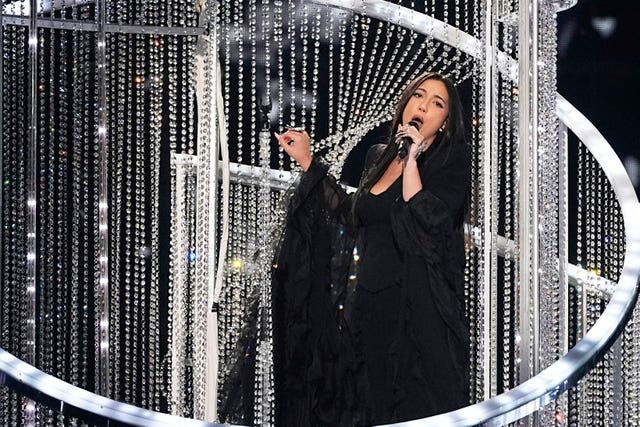
Israeli singer Yuval Raphael, an October 7 survivor, sang the heartfelt New Day Will Rise, while colourful Ukrainian band Ziferblat burst on to the stage to perform Bird Of Pray.
BBC Eurovision Song Contest commentator Graham Norton said there was a “mixed response” in the arena to Raphael, 24, who he said attracted cheers and boos.
Swiss broadcaster SRG SSR said her act also saw a crew member hit with paint, after two people tried to rush on stage through the barrier after Raphael’s performance.
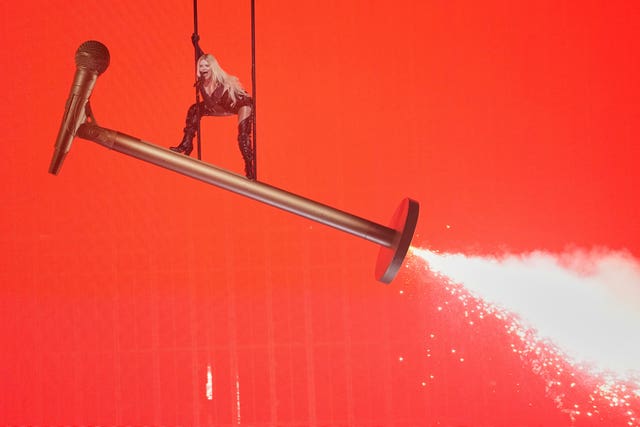
“They were stopped,” a spokesman said. “One of the two agitators threw paint and a crew member was hit.
“The crew member is fine and nobody was injured. The man and the woman were taken out of the venue and handed over to the police.”
A spokesman for Basel police said: “The organiser handed the two people over to the police. The police checked the two people and then released them. It is now up to the organiser to decide whether to press charges.”
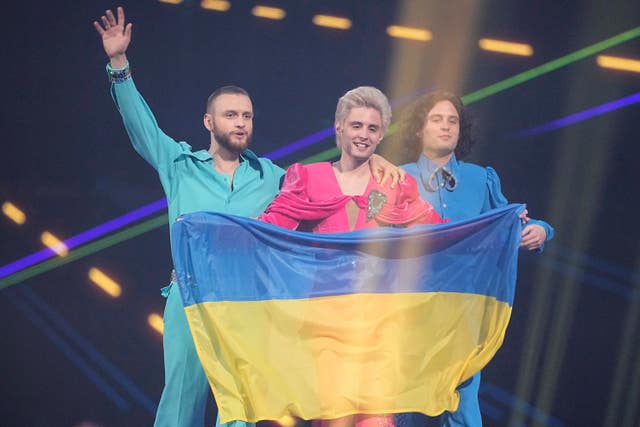
Ukraine has made it through to every final since they began competing in 2003, while if Israel triumph they will join Luxembourg, France, the Netherlands and the United Kingdom on five wins.
Also taking to the stage before Remember Monday was Norway’s Kyle Alessandro, the youngest Eurovision act this year at 19 years old who has an exam on Monday morning and is taking part on the date of his country’s National Constitution Day, with the fiery Lighter.
Luxembourg’s Laura Thorn sang the zany La Poupee Monte Le Son while Estonia’s Tommy Cash entertained with his spaghetti-dancing filled Espresso Macchiato, a parody on Italian stereotypes.
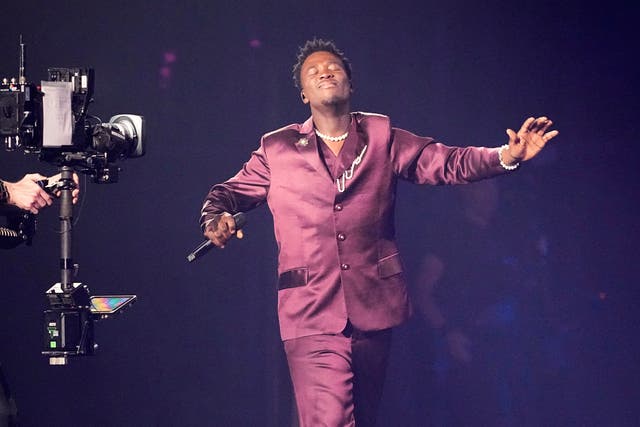
Back to back were two favourites, the Dutch singer Claude Kiambe, and Finland’s Erika Vikman, who had contrasting performances.
Congolese-born Kiambe, 21, sang the heartfelt C’est La Vie, inspired by his mother’s advice of understanding that there are good and bad moments in life, while surrounded by violins, and finished breaking down in tears.
Opting for a different tack was black leather-clad Vikman with the risque Ich Komme – a German-Finnish entry that finished with her taking off on a giant microphone with sparks flying.
Also garnering cheers were Maltese singer Miriana Conte with Serving, which was changed from Kant because of its similarity to a swearword, and Switzerland’s Zoe Me with the powerful Voyage.
As the final neared its end, performers included Sweden’s Kaj – who if the sauna advocates win will break the Eurovision record for the country with eight wins – French singer Louane Emera and San Marino’s Gabry Ponte with upbeat Tutta L’Italia.
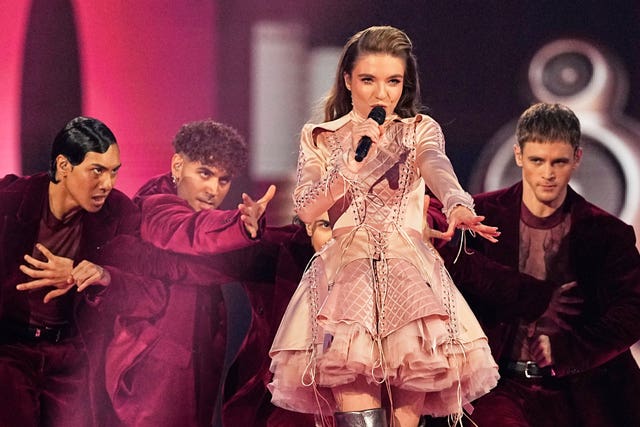
Earlier, 2024 Swiss winner Nemo returned to the Eurovision stage to do a rendition of The Code in a full-length white dress, following an opening sketch which saw a Mission Impossible-style segment to find the trophy, before it was delivered to the hosts.
The winner will be determined by viewer votes in the participating 26 countries, which have already begun, and juries made up of the music industry.
The rest of the world also had a poll, which will count the same as a country, and the verdict of TV viewers will be added to the combination of points from national juries.
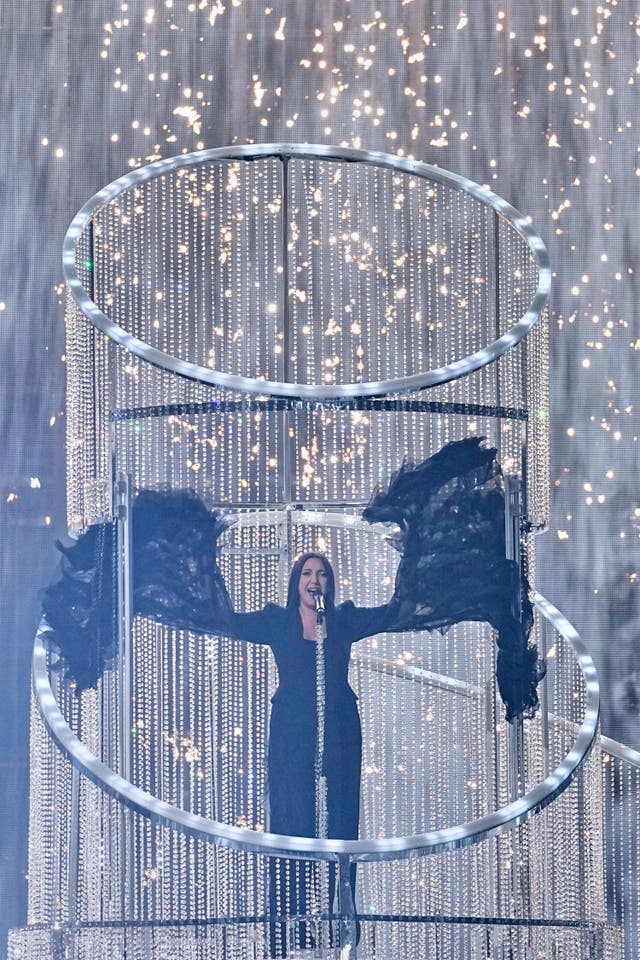
The UK’s national jury votes are set to be announced by singer Sophie Ellis-Bextor after Doctor Who actor Ncuti Gatwa pulled out of being the British Eurovision spokesperson due to “unforeseen circumstances”.
Earlier, there were pro-Palestinian protests near a free concert in the centre of Basel to demonstrate against Israel’s inclusion, with a small group nearby also protesting with Israeli flags.
Later the group advocating for Israel to be removed from Eurovision moved across Basel, where they were met by a significant police presence, and tear gas was seen being used.
On Saturday, the Basel government said more than half a million people have visited the city so far this week after the competition came home to Switzerland, which first hosted it in 1956 in Lugano.
TV coverage for the final is provided by “King of Eurovision” Norton on BBC One from 8pm on Saturday while British audiences can also listen to BBC Radio 2 and BBC Sounds for live coverage with presenters Rylan Clark and Scott Mills.





